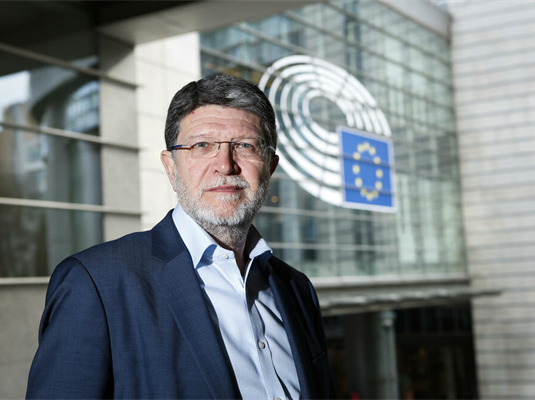"In a democracy, those who think differently have a legitimate voice, but that doesn't mean they should practice values that are incompatible with a pro-Western policy as the executive authority. This kind of ideological-interest-based confrontation within the ruling majority has already cost Montenegro enough over the last three years," Picula said.
He emphasized that, by the end of this month, he will present a draft resolution of the European Parliament on Montenegro to the EP's Foreign Affairs Committee, with its adoption planned during one of the plenary sessions in October.
"I believe that with this resolution, we have managed to cover a dynamic year, which unfortunately, unlike significant domestic political turmoil, was a year of stagnation on the European path for Montenegro," Picula stated.
Regarding recent discussions about EU enlargement by 2030, including Western Balkan countries, Picula highlighted that it's essential for Montenegro, regardless of various interpretations of EU enlargement policy, to maintain its focus on what needs to be changed within the country.
"Not only for EU membership but also for the sake of the country itself and its citizens who deserve to live in a well-ordered and prosperous state. The future of EU enlargement policy remains open when it comes to specific deadlines, but experience shows that political will is crucial," Picula emphasized. He also noted that EU enlargement policy is unlikely to be abolished, regardless of pressures, and Montenegro is the most likely candidate to join the EU after Croatia.
Regarding the formation of the Montenegrin government, Picula stated that discussions in Brussels don't directly influence this process. He emphasized that it's essential for the future government to be more coherent in terms of its fundamental goals and known foreign policy orientation.
"One of the amendments concerns the issue of Prevlaka. If the border dispute with Montenegro over Prevlaka is not resolved, can Croatia block Montenegro's EU accession?"
Montenegro has direct contact with the EU only at one part of its external borders. That part of the border is regulated by a temporary protocol signed by me as the then-Minister of Foreign Affairs of Croatia about twenty years ago. However, it has been shown that such a solution did not have a negative impact on our relations. On the contrary, since then, Montenegro and Croatia have become NATO members, meaning that they should "have each other's backs" in potential security crises. I am against the (mis)use of unresolved bilateral issues in negotiation processes by EU member states because Croatia has had very unpleasant experiences in this regard. However, it would be good to close open bilateral issues, not so much for closing negotiation chapters but for improving relations.
Picula was also asked about the Prevlaka border issue, and he mentioned that unresolved bilateral issues shouldn't be used to block the progress of EU accession negotiations. Instead, it would be better to address and resolve these issues to improve relations.


